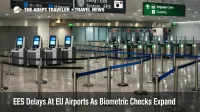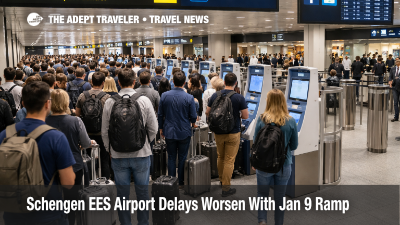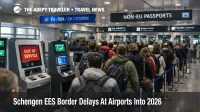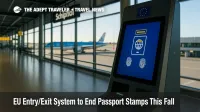Schengen
The term "Schengen" is commonly heard in discussions about European travel, but what exactly does it encompass? The Schengen Agreement is a pivotal development in European history, fundamentally transforming the ease of travel within the continent. Initially signed in 1985 in the village of Schengen, Luxembourg, this agreement aimed to abolish border checks between certain European countries, allowing for free and unrestricted movement of people. Since then, the Schengen Area has grown, encompassing 27 countries as of 2023, thereby making travel an effortless experience for many.
The Origins and Evolution of the Schengen Agreement
The Schengen Agreement began with a modest plan to improve economic trade and cooperation between a handful of countries. The underlying principle was to create a zone where people could move freely across borders without the need for passport controls. This would not only encourage tourism but also improve business efficiency and foster a sense of unity among participating nations.
The agreement was first implemented in 1995 by seven EU countries. Over the years, more nations saw the benefits and joined the Schengen Area, with the most recent addition being Croatia in 2023. It is important to note that the Schengen Zone goes beyond the European Union, including countries like Norway, Iceland, Switzerland, and Liechtenstein, which are not EU members but have opted to participate in the agreement.
Freedom of Movement: What It Means for Travelers
One of the most remarkable aspects of the Schengen Agreement is the concept of freedom of movement. For travelers, this means the ability to cross internal borders within the Schengen Area without the need for passport checks. Imagine planning a European trip that includes France, Germany, and Spain. With the Schengen Visa, you can explore these countries without the inconvenience of undergoing tedious border checks at each crossing. This seamless travel experience saves time and makes the entire journey far more enjoyable.
The Schengen Visa allows travelers to stay within the Schengen Zone for up to 90 days within a 180-day period. The visa is typically valid for tourism, business, and family visits. However, it is crucial for travelers to observe the '90/180 rule' to avoid overstaying, which can lead to penalties and complications in future travel plans.
Obtaining a Schengen Visa: The Process
The procedure to obtain a Schengen Visa requires attention to detail but is generally straightforward. The first step is to determine which country you will be spending the most time in during your travel. This becomes your main destination, and you'll need to apply for the visa at the embassy or consulate of that country.
The essential documents required typically include a completed visa application form, passport-sized photos, valid travel insurance covering up to €30,000, proof of accommodation, and an itinerary of your stay. Financial proof, such as bank statements, may also be necessary to demonstrate your ability to support yourself during your trip. Visa fees and processing times can vary, so it's advisable to apply well in advance of your planned travel dates.
Notable Exceptions and Points of Caution
While the Schengen Area provides remarkable travel freedom, it is vital to understand certain exceptions. Some regions and territories under the jurisdiction of Schengen countries are not included in the agreement. For instance, the Canary Islands (Spain), Madeira (Portugal), and overseas French territories are outside the Schengen Zone.
Moreover, the freedom of movement under the Schengen Agreement does not equate to the right to work. Specific work visas and permits are required if employment is the purpose of your visit. Travelers must also be mindful of different local regulations that might affect their travel experience, such as national holidays, which can influence public transport and service availability.
Benefits Beyond Travel: Strengthening Unity and Cooperation
The Schengen Agreement extends benefits beyond mere travel convenience. It fosters economic cooperation and stability among member countries by simplifying the logistics of cross-border trade and tourism. The agreement also contributes to a sense of European identity, encouraging cultural exchange and mutual understanding among diverse populations.
Moreover, the Schengen Area strengthens security cooperation among member states. Participating countries use shared databases such as the Schengen Information System (SIS), Visa Information System (VIS), and the EURODAC to coordinate security measures, track visa applicants, and manage asylum requests. While internal borders are open, the external borders of the Schengen Area are rigorously controlled to ensure security.
Impact on Travelers: The Future of the Schengen Agreement
The landscape of international travel is continually evolving, influenced by technological advances, geopolitical changes, and public health considerations, as highlighted by the recent COVID-19 pandemic. The Schengen Agreement has shown remarkable adaptability, with countries introducing temporary border controls in response to crises, only to lift them when conditions improved.
Looking ahead, the Schengen Agreement faces new challenges and opportunities. Expansion continues to be a topic of discussion, with potential future members like Bulgaria and Romania expressing interest. However, issues such as border security, migration, and the continuous effort to balance freedom of movement with national sovereignty remain focal points of debate among member countries.
For travelers, the future of the Schengen Agreement promises both continuity and change. While the fundamental benefits of unrestricted movement are likely to remain, advancements in digital technologies, like electronic visa applications and biometric authentication, are likely to streamline the travel experience further. Additionally, enhanced security measures and evolving regulations will continue to shape the landscape of European travel.
From its origins in a small Luxembourg village to becoming a cornerstone of European integration, the Schengen Agreement stands as a testament to the power of collaboration and unity. Whether you are a seasoned traveler or planning your first European adventure, understanding the intricacies of the Schengen Agreement can enrich your journey, offering you the unparalleled freedom to explore the diverse cultures and landscapes that Europe has to offer.
EES Delays At EU Airports As Biometric Checks Expand

Schengen EES Biometric Queues At Airports And Ports Rise

EU EES Passport Control Queues, January 9 Ramp

Schengen EES Airport Delays Worsen With Jan 9 Ramp

Geneva Airport EES Queues Up To 4 Hours

Schengen EES Border Delays At Airports Into 2026

Schengen Internal Border Checks Widespread In Late 2025

EU entry/exit system starts October 12: what to expect

EU Entry/Exit System to End Passport Stamps This Fall

EU Proposes €20 ETIAS Fee After Years of Delays

France Extends Schengen Border Controls Amid Security Concerns

EU’s New Entry-Exit System: Key Updates for U.S. Travellers

Travel News: Pandemic Restriction Updates from Italy, Spain, and the United States

